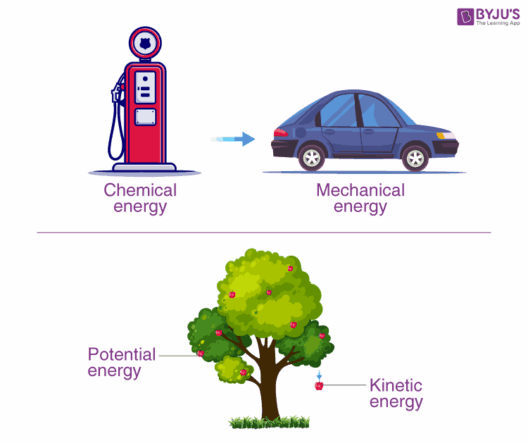Climate change, a leviathan of our own making, looms over humanity, its tentacles reaching every corner of the Earth. But like the resolute phoenix rising from the ashes, we too possess the power to effectuate change, to mitigate this perilous crisis. The path to climate action may not shimmer with instant gratification, yet it is laden with profound gratification for our planet and future generations. Herein lies a treasure trove of accessible strategies that anyone can embark upon today, thereby partaking in the noble endeavor of mitigating climate change.
First and foremost, it is paramount to grasp the implications of energy consumption. The illuminating glow of electricity awakens the lifeblood of modern society; however, its generation often comes at a grievous environmental cost. Transitioning to energy-efficient appliances is a modest yet potent stride. Consider the metaphorical pearl—an unassuming object, yet with transformative power. By replacing conventional bulbs with LED lighting, households can dramatically reduce their energy usage. Each lamp flicked on becomes a beacon of change that contributes to diminishing fossil fuel reliance.
The allure of renewable energy sources, particularly solar power, cannot be overstated. When one invests in solar panels, it is akin to planting a tree that will yield fruits for decades to come. Homeowners who harness the sun’s resplendent rays tap into a reserve of clean energy and enjoy significant savings on electric bills, all while ensconcing themselves in the embrace of sustainable practices. For those unable to install solar panels, supporting renewable energy projects through ethical investments is equally commendable.
Next, contemplate the food choices we make daily. Agriculture constitutes a substantial contributor to greenhouse gas emissions. By shifting towards a plant-centric diet, individuals can reduce their carbon footprint significantly. Picture a vibrant garden: each vegetable and grain cultivated is a seed of promise planted in the ongoing battle against climate change. Even modest actions, such as adopting Meatless Mondays or increasing plant-based meals, can coalesce into a formidable movement for sustainability.
Moreover, the perils of food waste should not be underestimated. In a world where hunger looms precariously, the act of discarding edible substances is tantamount to abdicating responsibility. To combat this injustice, meticulous meal planning and utilizing leftovers are powerful tools within an individual’s arsenal. Transforming food scraps into compost serves a dual purpose—reducing waste while enriching the soil, reminiscent of a circle of life where nothing is wasted, and everything is repurposed.
Transportation, too, plays a crucial role in the carbon emission narrative. Consider the metal beasts that traverse our roads, spewing pollutants into the atmosphere. By opting for public transport, cycling, or walking, a single individual can sever the chain of dependency on fossil fuels. Using a bicycle may evoke images of a whimsical dandelion capering in the wind, representing freedom, health, and a greener planet. Whenever possible, carpooling further amplifies this movement, transforming isolated journeys into shared adventures, thereby lessening the environmental burden together.
Reducing, reusing, and recycling: a triad of sustainability practices that we must embody. Envision a lifeboat, steadfast and sure, guiding survivors through turbulent waters. This triad empowers individuals to minimize waste and perpetuate ecological balance. From repurposing jars into storage solutions to upcycling clothing items, imbuing our belongings with new life is essential. It explicitly echoes the age-old adage that one person’s trash can become another’s treasure. Participating in community recycling programs is a vital step that fortifies the collective effort.
Conservation of water is an equally critical yet often overlooked area. As precious as a drop of rain in a parched desert, water is an irreplaceable resource. Simple actions like fixing leaky faucets and utilizing drought-resistant plants in landscaping serve to underscore the importance of water stewardship. Taking shorter showers or capturing rainwater for gardening underscores the importance of preserving this invaluable treasure.
Moreover, becoming an advocate for the environment catalyzes a ripple effect within one’s community. Engaging in local initiatives, supporting legislation aimed at reducing carbon emissions, and participating in clean-up drives function as direct conduits for collective progress. Harnessing the power of social platforms to disseminate awareness amplifies one’s voice, transforming an individual into a harbinger of change. Within the grand tapestry of climate action, each thread woven strengthens our resolve against a common adversary.
Importantly, fostering a mindset of continual learning about sustainability yields profound insights. Read literature on climate issues, attend workshops on eco-friendly living, and engage with like-minded individuals who share a passion for planetary stewardship. The more informed we become, the better equipped we are to make impactful decisions that align with ecological preservation. Curiosity fuels the fire of progress; it is essential that we stay resolute in educating ourselves and sharing that knowledge with others.
In conclusion, while climate change may appear insurmountable, envisioning ourselves as an interconnected community ignited by a singular mission imbues a sense of hope. The steps outlined herein are but a starting point, yet collectively, they function as a formidable arsenal against the throes of environmental degradation. Each action taken, no matter how small, culminates in a crescendo of change. Together, as custodians of the Earth, we possess the extraordinary capability to reshape our planet’s future, weaving a narrative of resilience that reverberates through the annals of time.







